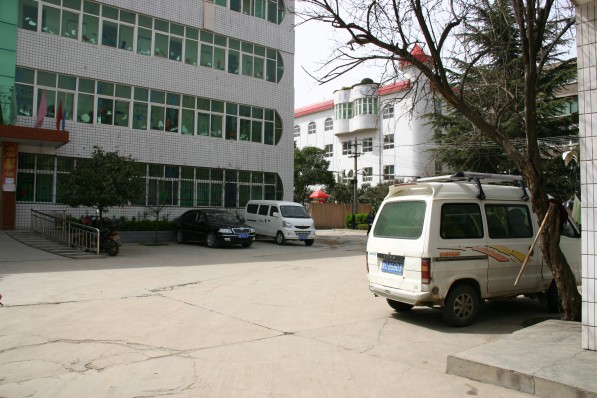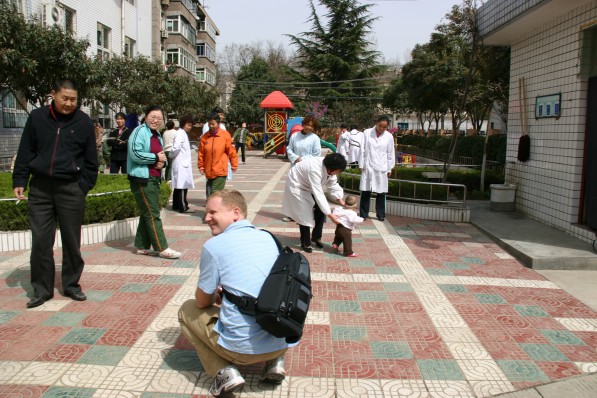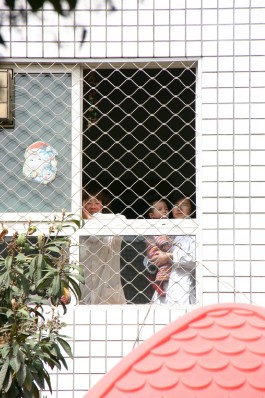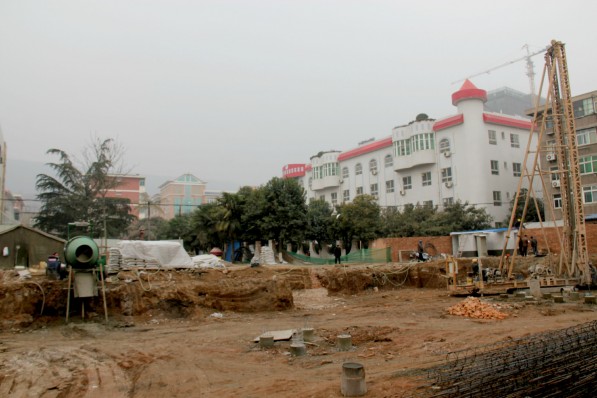It was never an easy journey to get there.
When I said we wanted to visit her orphanage in 2010 when we were there to adopt her, we met resistance. It was too far. The train was too fast for a child. We would be too tired. We would bring germs from America. We wouldn’t want to go. But, that’s where they were wrong. I was determined to go, determined to physically enter into her history even if only for a moment. And so, we went. We drove about 3 hours there to stand at the gate, walk across the grounds, allow the ayis who knew our child infinitely more than we did to dote on our baby, and take lots of pictures.
I had never been more aware of my foreignity as I was at that moment. We were out of place, standing among ayis speed talking in a language only unrecognizable to the two of us. They pointed at us and spoke freely, knowing we would stand still in front of them and smile regardless of what they said. We watched as our new baby responded in a way we could not. She wasn’t a stranger there; they knew her and she knew them. We were the strangers surrounded by grey cement walls and dusty ground. The only thing I felt connected to there were the very walls themselves. I tried desperately to grab hold of something to take home with us, not even knowing really what, while the walls seemed to desperately present themselves as cheerful with some colorful cardboard cut outs stuck to them for now until the next rainfall would turn them into more dust on the ground. I cried. It sorta felt like the grey, tiled walls were crying too.
When I said I wanted to visit the location of the old orphanage a few weeks ago, I met resistance. It was too far. We would be too tired. It wasn’t safe. We wouldn’t want to go. And, while I had been determined to get there, I was willing to let it go. I had already been given so much, and it wasn’t the reason why I came.
When the driver pulled our van over and pointed to the right, my heart stopped for a moment.
There I was again, standing at a new gate that looked 50 years old already, looking at what used to be.
Most of the walls that had cried along with me four years ago were no more. I stood looking at what was in front of me and cried alone.
It’s China. Buildings are built and torn down and built again to be torn down again. It’s a seemingly never-ending cycle of building and destruction. Standing witness to it before me, I didn’t feel like the foreigner I had four years ago. Everything was different now. At the very moment I stood crying on Bao Ping Road, my daughter who had been there, who had lived behind those gates and inside those broken walls, was sleeping soundly beside her sister in a warm bed in the place she knows and I know as home.
I saw a picture of adoption that day in the form of broken walls and a quiet construction site.
They gave us a bag of dirt the day we received our daughter in March 2010. The director handed us a little bag of stones and dust from the grounds of the orphanage. I thought it was nice, thoughtful, a memento for her to have as she got older. We put it in a special box for her along with the clothes she came to us in and other special things. Now that gift means something entirely different. It is not a memento; it’s a monument. It gently says:
Those walls that were the only home you knew need to come down now. Let God turn them to dust, as hard as that may be, so that He can build new walls, strong walls, walls that will not crumble, walls where you will never be alone. It’s never an easy journey to get there; but, stone by stone, brick by brick, while it may be a painstaking journey, you can get there. Accept this gift so that you always remember your story and so that you can trace the work of the Repairer of Broken Walls, the Restorer of Crumbling Dwellings, the One who makes beautiful things out of stones, dirt, and dust.




